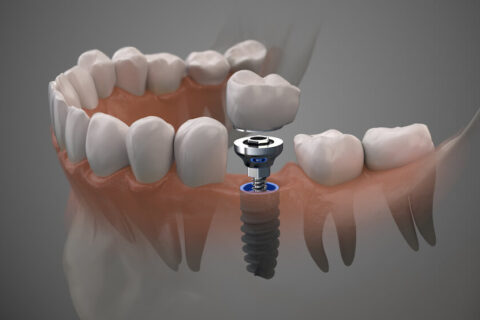Treatment Options for Gum Disease
Gum disease often starts with gingivitis and then progresses to periodontitis if it does not receive the appropriate treatment over time. While there are a number of treatments available for this condition, there are also several factors that determine which route you should take; for this reason it is important to meet with your dentist and find out which treatment best suits your needs. Read on to learn more about the various treatment options for gum disease in Denver.
Medication
Gum disease typically occurs as a result of inadequate dental hygiene or poor habits and may progress from gingivitis to periodontitis, so
your treatment options may depend on the progression of the disease. Although it is often used in conjunction with surgical procedures, medication can help to alleviate the symptoms of gum disease on its own. One popular medication used in the treatment of gum disease is medicated mouth rinses. These rinses help to reduce plaque and thus alleviate symptoms of gingivitis. Dentists may also prescribe antibiotics like minocycline or tetracycline for the treatment of gum disease. When these medications are prescribed, dentists often recommend the use of nonprescription antibiotic toothpaste to complement the treatment.
Non-Surgical Treatments
There are several non-surgical ways in which you can prevent the development of gum disease or slow or reverse its progression. Most importantly, you must commit to keeping your dentist appointments and meeting with your dentist regularly for a professional cleaning. Your dentist can thoroughly remove any plaque and tartar that has built up on the surface of your teeth as well as above or below the gum line. Your dentist may also suggest a scaling and root planing, which can help promote the reattachment of gums to your teeth.
Surgical Procedures
When gum disease has advanced to a significant degree, one of the many available surgical procedures may be most appropriate. Bone grafts restore and regrow bone, effectively stabilizing your teeth. Flap surgery cleans tartar from under gums and inhibits bacteria production, and bone surgery modifies the shape of bones that surround your teeth.



